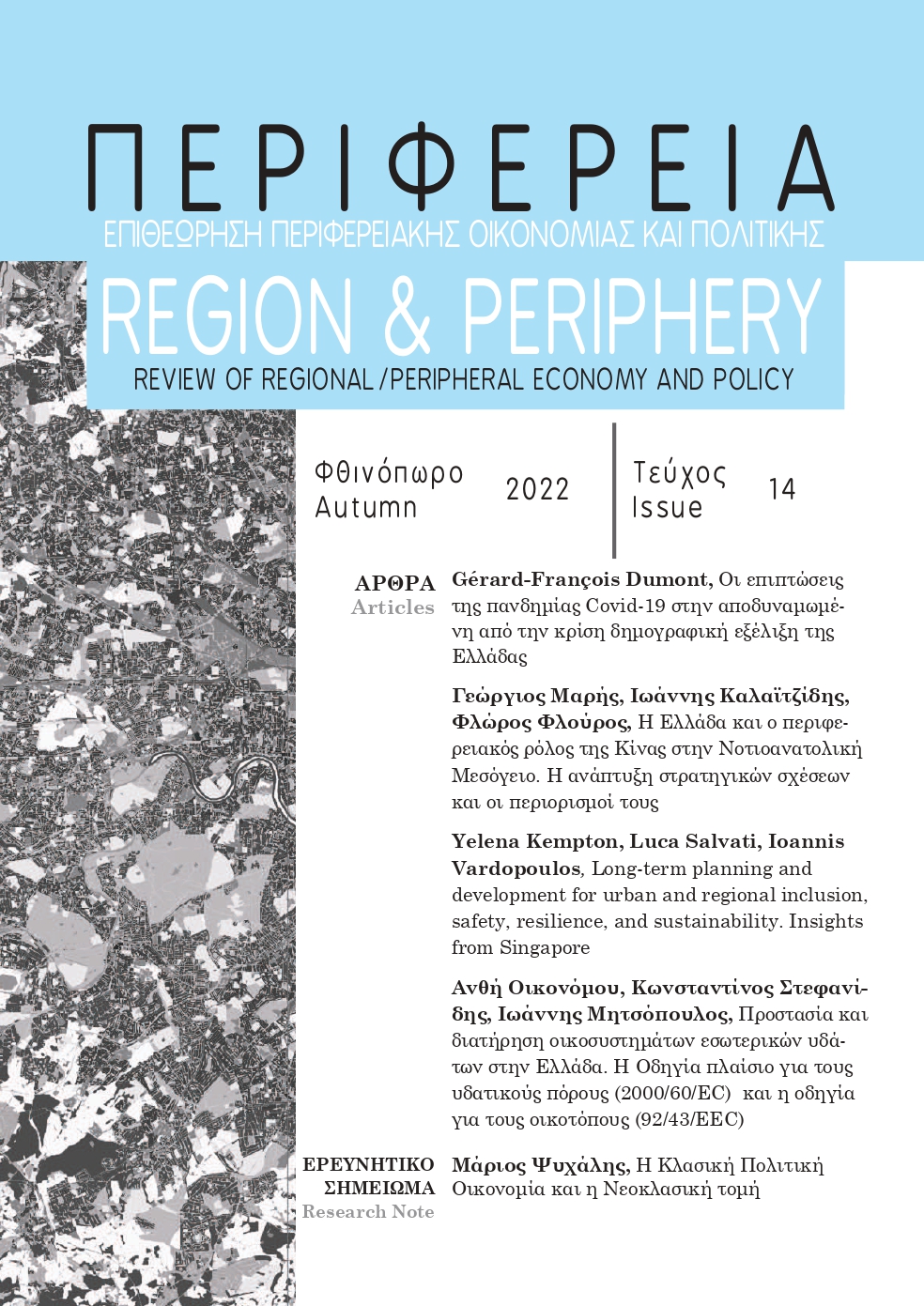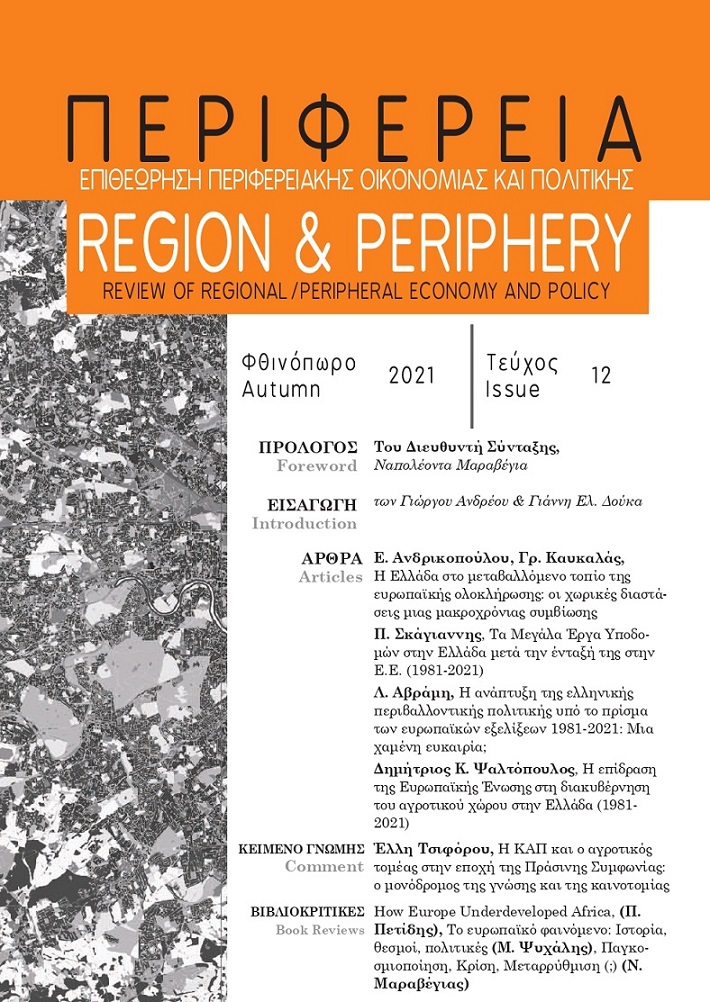Η Κλασική Πολιτική Οικονομία και η Νεοκλασική τομή
Περίληψη
To παρόν ερευνητικό σημείωμα εξετάζει συνοπτικά την θεωρητική συμβολή στην οικονομική σκέψη τόσο της Κλασικής, καθώς επίσης και της Νεοκλασικής Σχολής. Η Κλασική Σχολή υποστηρίζει την αντικειμενική ερμηνεία της αξίας, ενώ η Νεοκλασική Σχολή την υποκειμενική ερμηνεία, υπογραμμίζοντας τις διαφωνίες των Σχολών Σκέψης, ως προς την ερμηνεία των οικονομικών φαινομένων. Η Κλασική Σχολή υποστηρίζοντας την αντικειμενική ερμηνεία της αξίας, δίνει έμφαση στο κόστος παραγωγής, ενώ η Νεοκλασική Σχολή υποστηρίζει την υποκει-μενική ερμηνεία της αξίας που θεμελιώνεται στην χρησιμότητα του καταναλωτή. H Κλασική Σχολή διατηρεί την ανάλυση σε θεωρητικό επίπεδο, ενώ η Νεοκλασική Σχολή εισάγει την χρήση μαθηματικών εργαλείων, δίνοντας έμφαση στις οριακές μεταβολές και ελαστικότητες, ενώ δημιουργεί υποδείγματα, με πλέον δημοφιλές το Μαρσαλιανό σταυρό. Το σημείωμα καταλήγει να υπογραμμίζει τόσο τις ομοιότητες, όσο και τις διαφορές της Κλασικής, όσο και της Νεοκλασικής Σχολής.
Λεπτομέρειες άρθρου
- Πώς να δημιουργήσετε Αναφορές
-
Ψυχάλης Μ. (2023). Η Κλασική Πολιτική Οικονομία και η Νεοκλασική τομή. Περιφέρεια | Regional Integration: Politics, Economics, Governance, 14(14), 101–106. https://doi.org/10.12681/rp.32609
- Ενότητα
- Ερευνητικό Σημείωμα

Αυτή η εργασία είναι αδειοδοτημένη υπό το CC Αναφορά Δημιουργού – Μη Εμπορική Χρήση 4.0.
Οι συγγραφείς των άρθρων που δημοσιεύονται στο περιοδικό διατηρούν τα δικαιώματα πνευματικής ιδιοκτησίας επί των άρθρων τους, δίνοντας στο περιοδικό το δικαίωμα της πρώτης δημοσίευσης.
Άρθρα που δημοσιεύονται στο περιοδικό διατίθενται με άδεια Creative Commons 4.0 Non Commercial και σύμφωνα με την άδεια μπορούν να χρησιμοποιούνται ελεύθερα, με αναφορά στο/στη συγγραφέα και στην πρώτη δημοσίευση για μη κερδοσκοπικούς σκοπούς.
Οι συγγραφείς μπορούν να καταθέσουν το άρθρο σε ιδρυματικό ή άλλο αποθετήριο ή/και να το δημοσιεύσουν σε άλλη έκδοση, με υποχρεωτική την αναφορά πρώτης δημοσίευσης στο περιοδικό Περιφέρεια.
Οι συγγραφείς ενθαρρύνονται να καταθέσουν σε αποθετήριο ή να δημοσιεύσουν την εργασία τους στο διαδίκτυο πριν ή κατά τη διαδικασία υποβολής και αξιολόγησής της.




